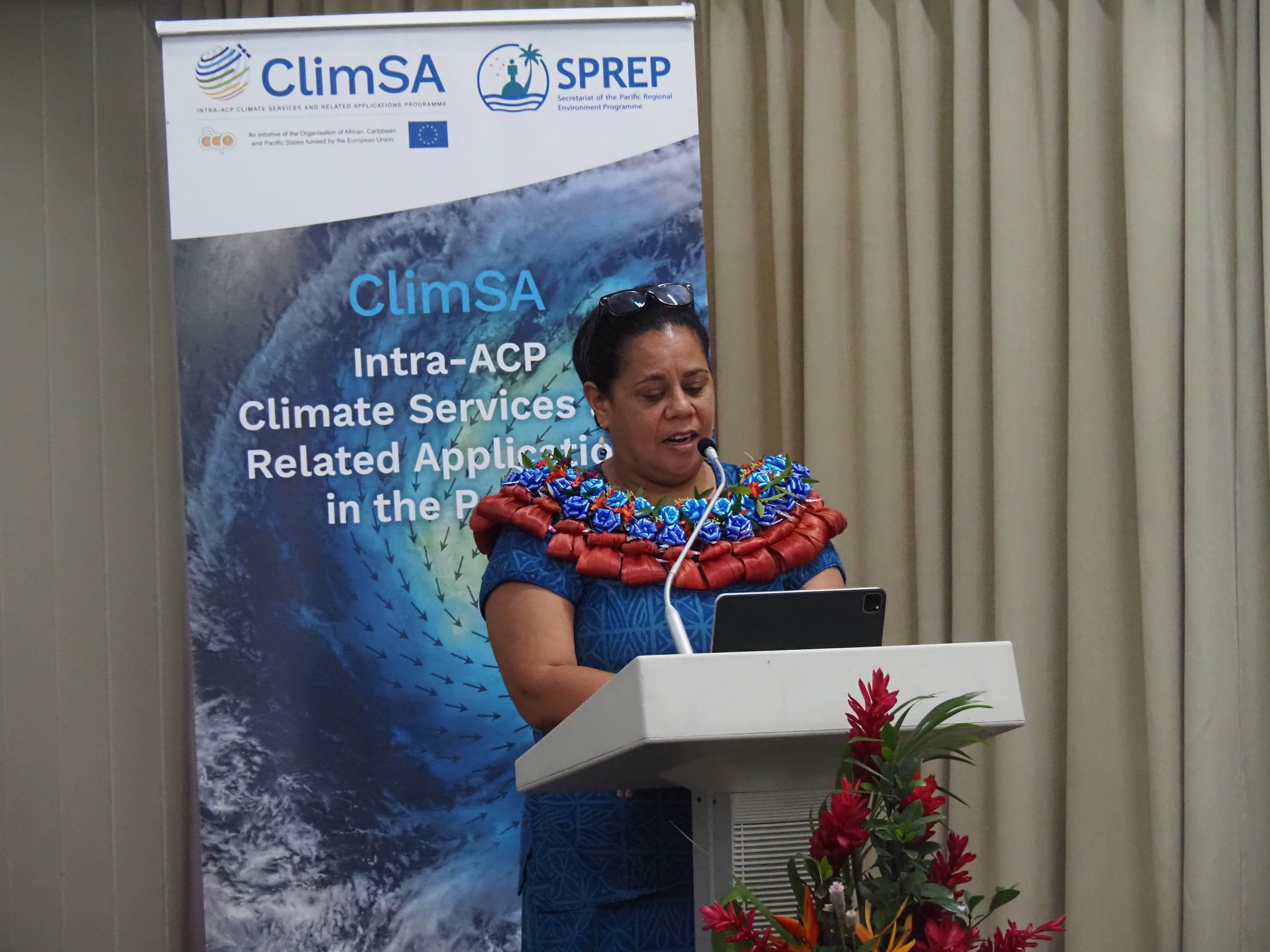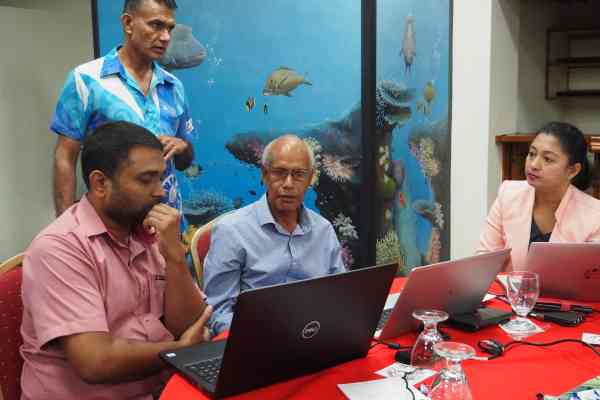
Ni sa bula vinaka Directors of the National Meteorological and Hydrological Services and the National Disaster Management Offices.
We often come together at global fora and in your respective countries, so it is indeed a privilege that we have you both these next 10 days. The last time we met in this very room was in 2013 from what I understand as we embarked on a couple of firsts. The convening of the Joint Pacific Climate Change Roundtable and Pacific Disaster Risk Management Platform, the inaugural Pacific Islands Emergency Management Alliance and the beginning of the roadmap to develop a strategy for climate and disaster resilience in the Pacific which we now know as the Framework for Resilient Development in the Pacific.
Thank you to the Secretariat of the Pacific Regional Environment Programme through the auspices of the EDF 11 EU ACP Climate Services and Related Applications (ClimSA) programme for convening this meeting. I would also acknowledge and thank the European Union and United Nations Office for Disaster Risk Reduction for your ongoing partnership and investment in the region to support our own commitments to achieving strengthened resilience.
In September 2022, with the Pacific Islands Forum Secretariat, the Pacific Resilience Partnership Task Force and the Government of Fiji, we convened the inaugural Pacific Ministerial Meeting for Disaster Risk Reduction. Again another first!
The Declaration of the Ministerial was intentional in their REQUEST to CROP to “strengthen coherence and bring together agencies and regional actors working on resilience and ensure stronger linkages between relevant fora, platforms and network.” Our coordinated effort to anchor the Pacific Resilience Partnership (PRP) and extend our support to the PRP Taskforce consisting of representatives from Countries and Territories, Civil Society, Private Sector, Development partners and regional organisations ensures that we find opportunities to lead and implement climate and disaster reduction priorities in areas where we have a comparative advantage as well as complementarity.
The work of yourselves as NDMO and NMHS continue to jointly work toward strengthening people-centred end-to-end multi-hazard early warning systems amongst other things. You also work together to produce current and future risk information to drive investments towards resilience. We know you are doing this at the national level and we hope to do our bit to add value to your own efforts and regionally
In the recent years, we as CROP agencies have put our efforts into the Pacific Resilience Partnership mechanism (which implements the three goals of the FRDP and integrates DRR with CCA). The intention is to strengthen collaboration, poo resources and ensure greater coordination of impactful actions in our resilience-building actions.
This multi-stakeholder approach has already delivered great results in the regional space and is relevant to replicate down at the national and local levels as well where private sectors and civil society can work alongside your government agencies.
As mentioned before we know that you are working together but we also know that we can do more together and look forward to listening to you all in the coming week so we are able to respond and elevate your priorities.
Vinaka vaka Levu for allowing us the opportunity to be a part of the Pacific family this week on your convening and wish us all a productive and successful series of events in the lead to the Ministerial Meeting and beyond.
